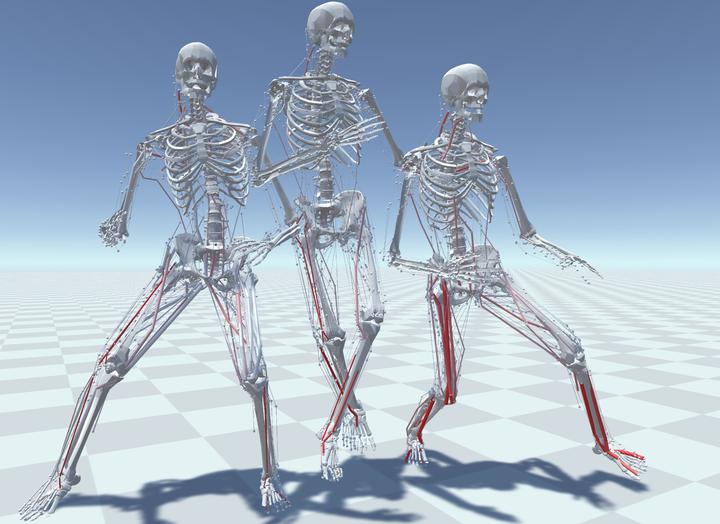
Abstract
In this paper, we present a simulation and control framework for generating biomechanically plausible motion for muscle-actuated characters. We incorporate a fatigue dynamics model, the 3CC-r model, into the widely-adopted Hill-type muscle model to simulate the development and recovery of fatigue in muscles, which creates a natural evolution of motion style caused by the accumulation of fatigue from prolonged activities. To address the challenging problem of controlling a musculoskeletal system with high degrees of freedom, we propose a novel muscle-space control strategy based on PD control. Our simulation and control framework facilitates the training of a generative model for muscle-based motion control, which we refer to as MuscleVAE. By leveraging the variational autoencoders (VAEs), MuscleVAE is capable of learning a rich and flexible latent representation of skills from a large unstructured motion dataset, encoding not only motion features but also muscle control and fatigue properties. We demonstrate that the MuscleVAE model can be efficiently trained using a model-based approach, resulting in the production of high-fidelity motions and enabling a variety of downstream tasks.